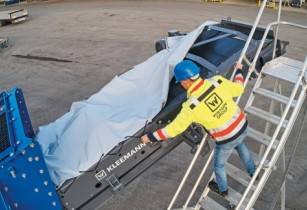Regional director for MENA at FireEye, Mohammed Abukhater, outlines seven key areas that will make up the majority of the security landscape in the Middle East moving into 2017
Mohammed Abukhater, regional director for MENA at FireEye has reported on the security landscape for 2017 and its threats. As he writes in his introduction, 'we know that certain types of attacks and crime will continue unabated.'
Abukhater outlines seven areas of risk. These are; a rise in politically motivated attacks, the threat of financial cybercrimes, an increasing skills gap, drive towards simplification, new opportunities for attackers in the Internet of Things, threats to critical infrastructure and Ransomware, Macro Malware.
For many, cyber security is treated differently to the regularly safety that is enforced at plants and operational rooms. As Safdar Akhtar of Honeywell stated in an interview 'people's training in these environments needs to change to adopt a new transmitting devices, such as mobile phones and gaming devices.' The full interview with Safdar can be found on Health, Safety, Security Review Middle East here.
Talent shortages and simplification may seem like odd challenges for cyber security but the threat is real. Abukhater states 'Digitalization is increasing in EMEA, with more communications, handling of sensitive information and storing of that data happening on the Internet rather than through filling out paper forms.' This means that a shortage of talented and experienced people safeguarding newly-trained colleagues may leave businesses open to security breaches.
'As the talent shortfall continues, the cyber security industry will see more and more innovation in the form of automation, which will help organizations react to attacks with minimal human intervention. Automation enables organizations to more efficiently address critical needs, which is particularly useful for enterprises that are struggling to keep pace with an escalating threat landscape and constant advances in cyber attacks' Abukhater continues.



























